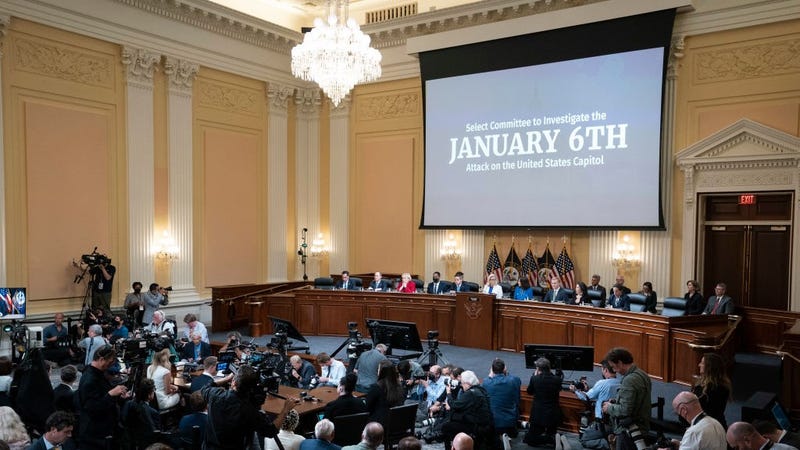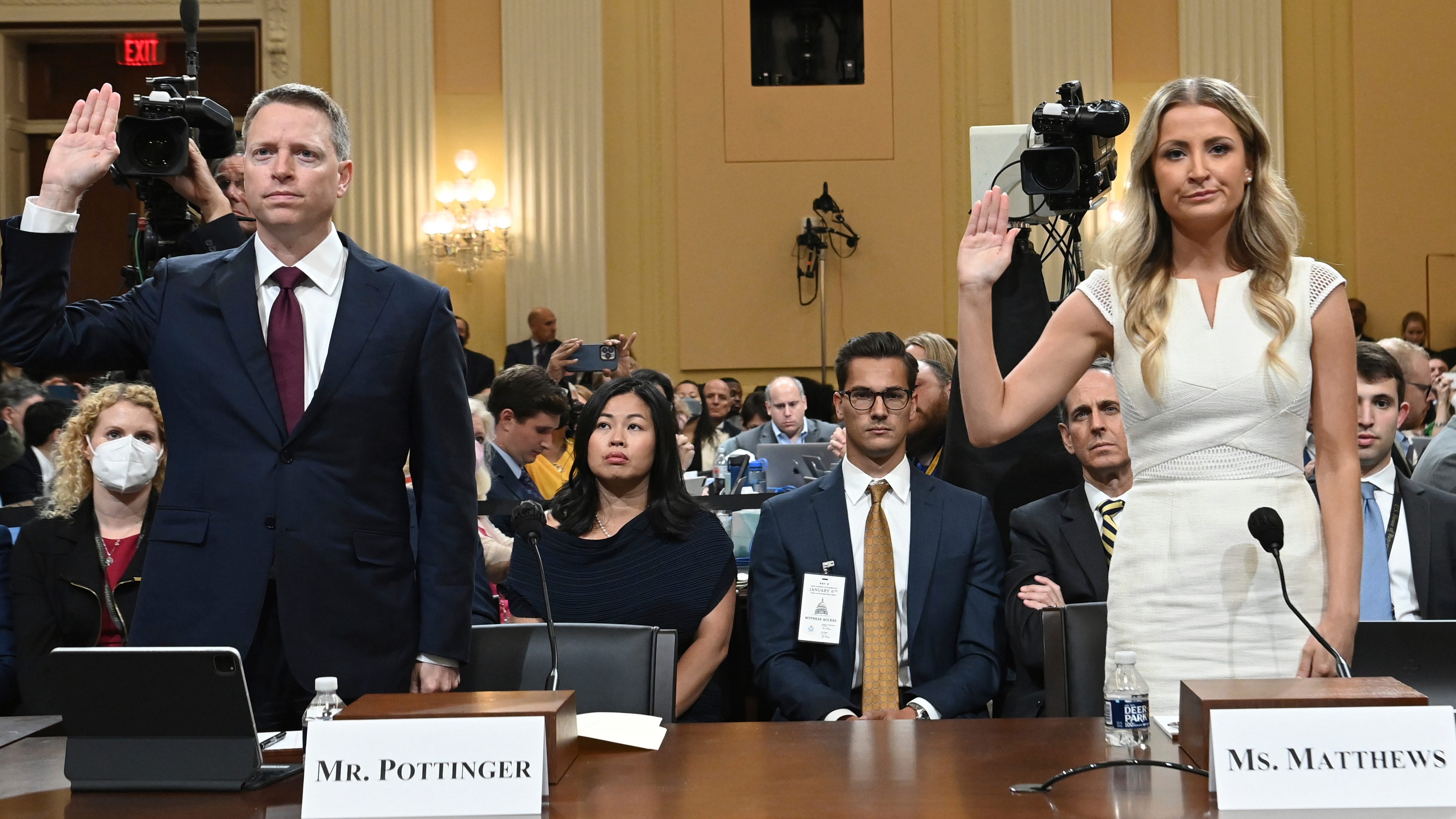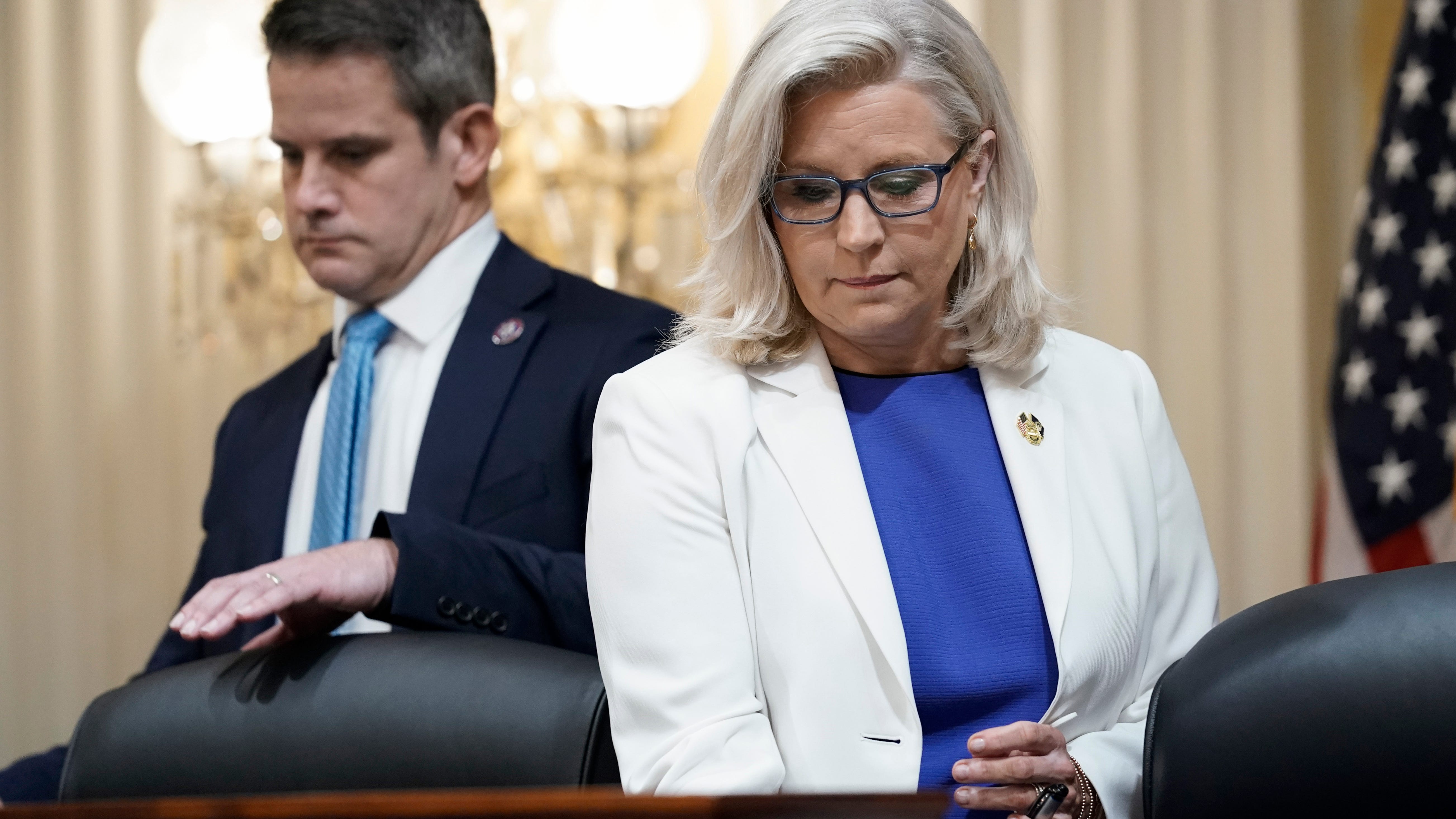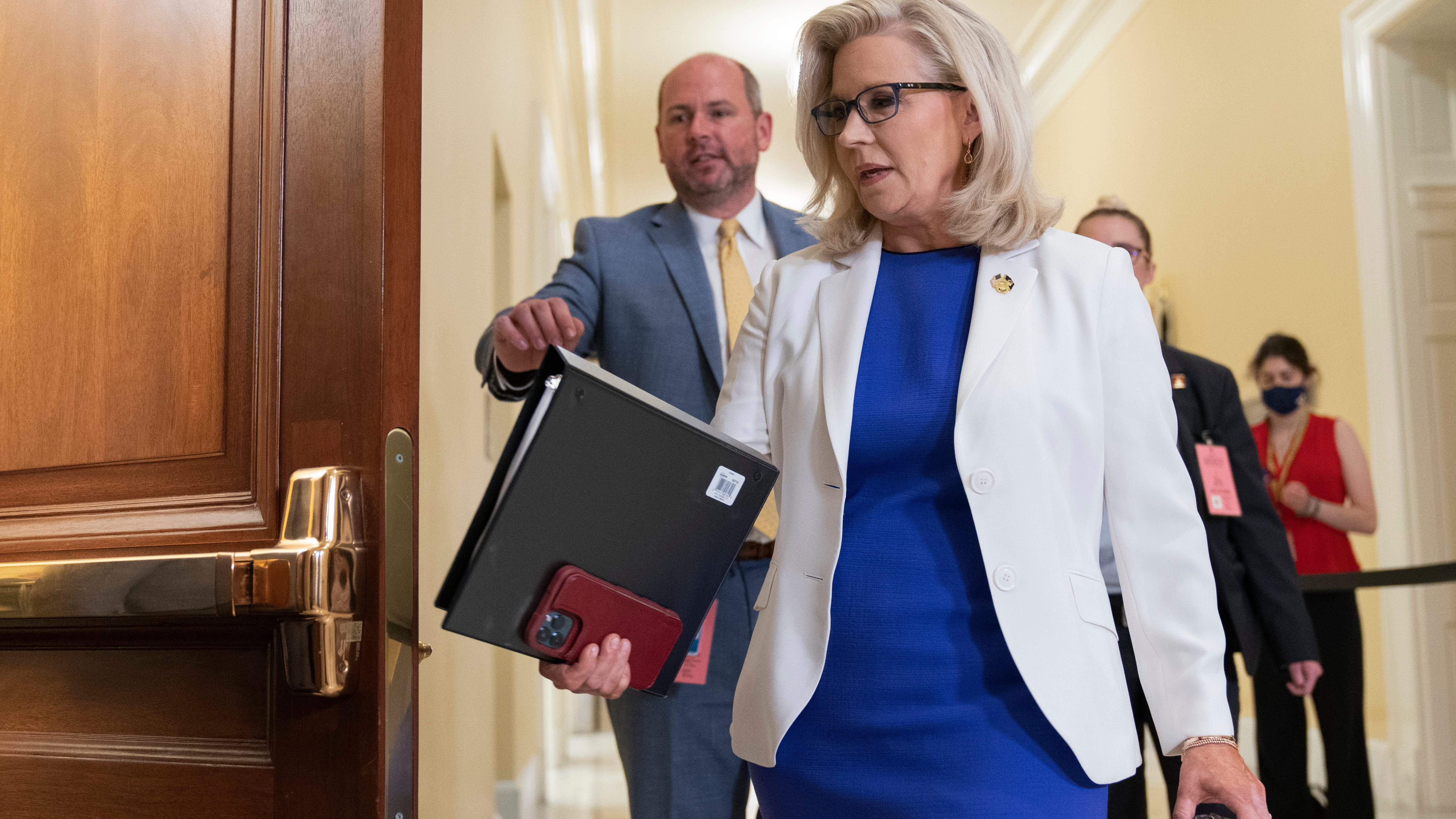
The House select committee investigating the Jan. 6, 2021 attack on the U.S. Capitol held its eighth and final hearing of the summer on Thursday night, as the panel focused on former President Donald Trump’s 187 minutes of inaction during the riots.
Chairman Rep. Bennie Thompson (D-Miss.), who was not in person at the hearing due to a positive COVID-19 test, appeared via video and gave an opening statement. He explained how the committee will show what Trump did during the 187 minutes between the end of his speech at the Ellipse at 1 p.m. to when he released a video at 4:17 p.m. to tell rioters to leave the Capitol.
“For 187 minutes on January 6, this man with unbridled destructive energy could not be moved," Thompson said. "Not by his aides, not by his allies, not by the violent chants of rioters, or the desperate pleas of those facing down the riot. And more tellingly, Donald Trump ignored and disregarded the desperate pleas of his own family, including Ivanka and Don Jr.
“Even though he was the only person in the world who could call off the mob he sent to the Capitol, he could not be moved to rise from his dining room table and walk the few steps down the White House hallway into the press briefing room where cameras were anxiously and desperately waiting to carry his message to the armed and violent mob savagely beating and killing law enforcement officers, revenging the Capitol, and hunting down the Vice President and various members of Congress. He could not be moved.”
Thompson then said that there needs to be accountability for the Jan. 6 attacks on the Capitol and "stiff consequences for those responsible."
“If there is no accountability for Jan. 6, for every part of this scheme, I fear that we will not overcome the ongoing threat to our democracy. There must be stiff consequences for those responsible,” Thompson said.
Vice chairwoman Rep. Liz Cheney (R-Wyo.) then spoke, and said that the “one thing” Trump could do to achieve his goal of overturning the election was to allow the angry mob to attack the Capitol.
“Only one thing was succeeding on the afternoon of January 6, only one thing was achieving President Trump’s goal, the angry armed mob President Trump sent to the Capitol, broke through security, invaded the Capitol, and forced the vote counting to stop," Cheney said. "That mob was violent and destructive, and many came armed."
Rep. Elaine Luria (D-Va.) went on to explain how while the riot was ongoing, Trump sat in the dining room and watched Fox News. She added that Trump then began to make calls to Republican senators to help him overturn the election, instead of calling law enforcement and security to help remove people from the Capitol.
Rep. Adam Kinzinger (R-Ill.) later spoke while showing a blueprint of the White House to emphasize how quickly Trump could have made his way to the press briefing room. Sarah Matthews, Trump’s deputy White House press secretary, said during her testimony that it would have taken Trump about 60 seconds to get to the press briefing room.
Audio from the Secret Service agents assigned to former Vice President Mike Pence was then played. Some agents called their family members to say goodbye, as they feared for their lives while escorting Pence to safety.
Matthews was asked about Trump's tweet at 2:24 p.m. about Pence and to continue the attack on the Capitol. She also explained the impact Trump's words had on his supporters.
"It was obvious that the situation at the Capitol was violent and escalating quickly, and so I thought that the tweet about the Vice President was the last thing that was needed in that moment," Matthews said. "I remembered thinking that this was going to be bad for him to tweet this, because it was essentially him giving the green light to these people.
"Telling them that what they were doing at the steps of the Capitol and entering the Capitol was ok and they were justified in their anger. And he shouldn't have been doing that, he should have been telling these people to go home and to leave and to condemn the violence that we were seeing."
"They truly latch on to every word and every tweet that he says, and so I think that in that moment for him to tweet out the message about Mike Pence, it was him pouring gasoline on the fire and making it much worse," Matthews added.
Upon returning from a 10-minute break, Kinzinger spoke while showing a number of different people's text messages to former White House chief of staff Mark Meadows, including Donald Trump Jr. and Sean Hannity, asking Meadows to get Trump to stop the rioters. Additionally, video of former White House counsel Pat Cipollone's testimony was shown in which he said Trump was the only person in the White House who didn't want to clear the mob.
Audio from rioters at the Capitol was then played, as members discussed what to do based on Trump's tweets.
The committee showed video of Trump remarks from the Rose Garden, and noted that he did not follow the prepared speech by showing what he had been expected to say.
Matthew Pottinger, a former National Security Council official, said that the attack on the Capitol "emboldened our enemies by helping give them ammunition to feed a narrative that our system of government doesn’t work, that the United States is in decline."
Additional video was played of Trump recording a message on Jan. 7, and the outtakes of the video showed a visibly frustrated Trump unable to admit he lost the election.
"President Trump did not then and does not now have the character or courage to say to the American people what his own people know to be true, he is responsible for the attack on the Capitol on January 6," Luria said.
"For three hours he refused to call off the attack. Donald Trump refused to take the urgent advice he received that day," Kinzinger said.
"Whatever your politics, whatever you think about the outcome of the election, we as Americans must all agree on this: Donald Trump's conduct on January 6 was a supreme violation of his oath of office and a complete dereliction of his duty to out nation. It is a stain on our history," Kinzinger added.
Thompson then reappeared via video and said that the committee will reconvene in September after they continue to investigate and pursue other testimonies.
"Can a president who is willing to make the choices Donald Trump made during the violence of January 6 ever be trusted with any position of authority in our great nation again?" Cheney said.



